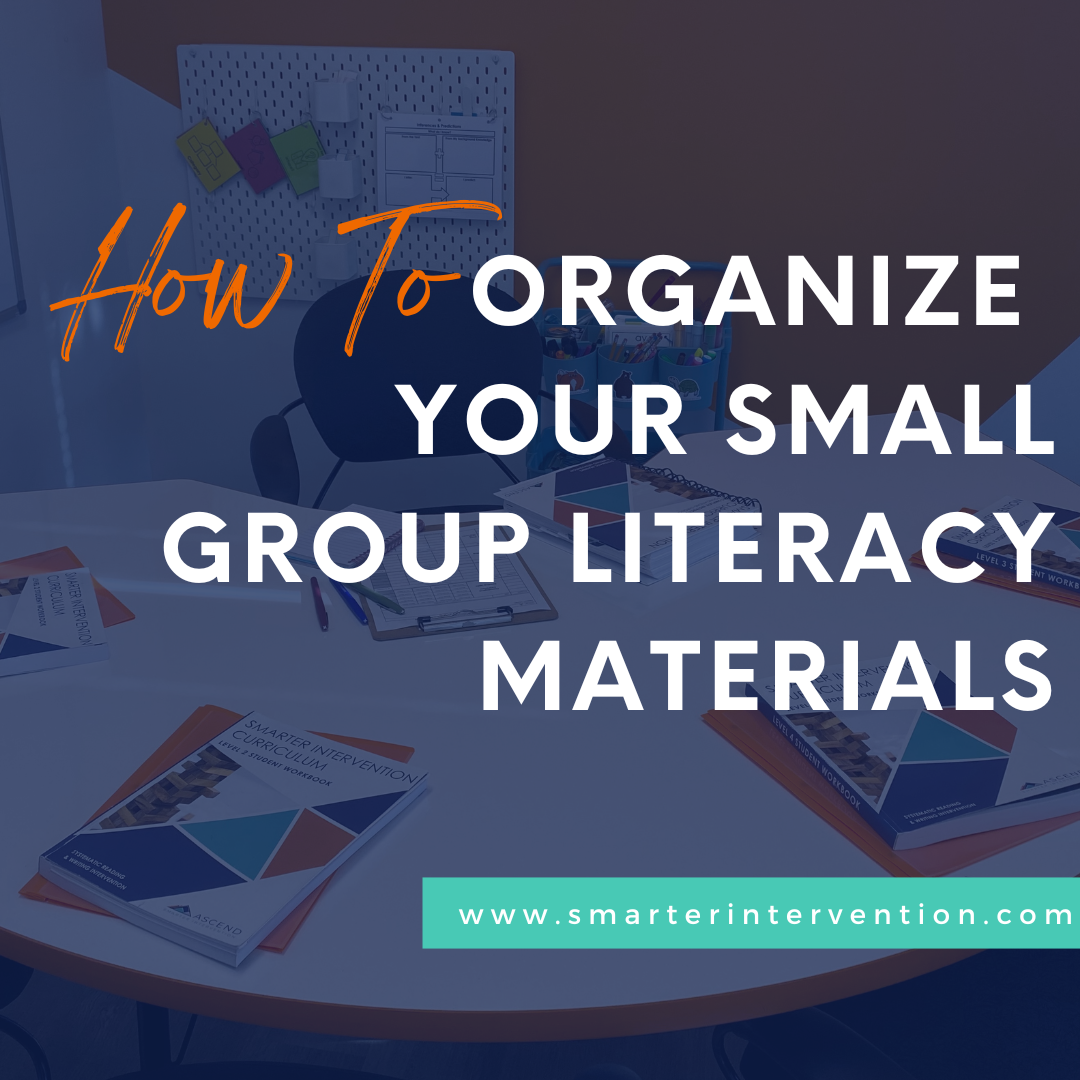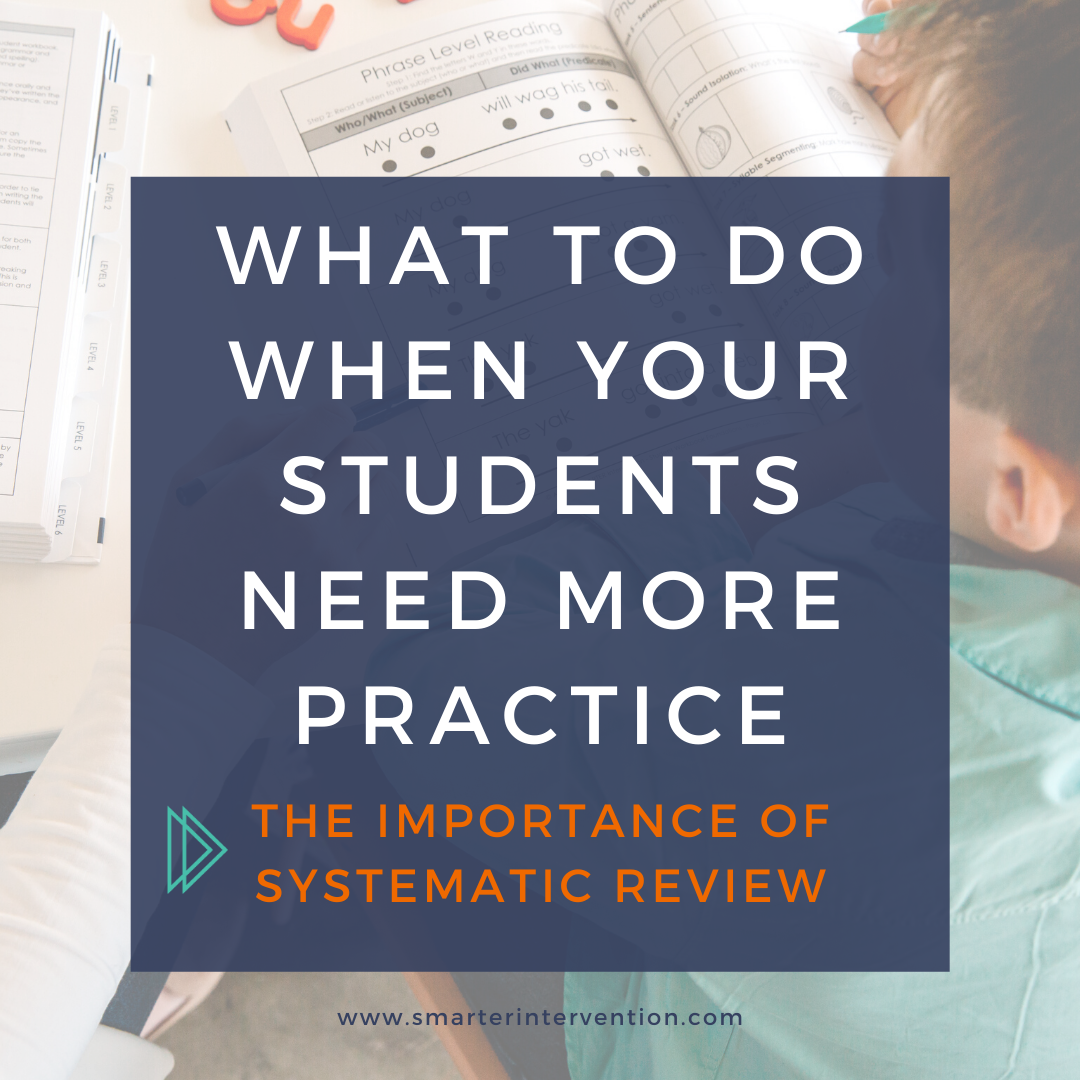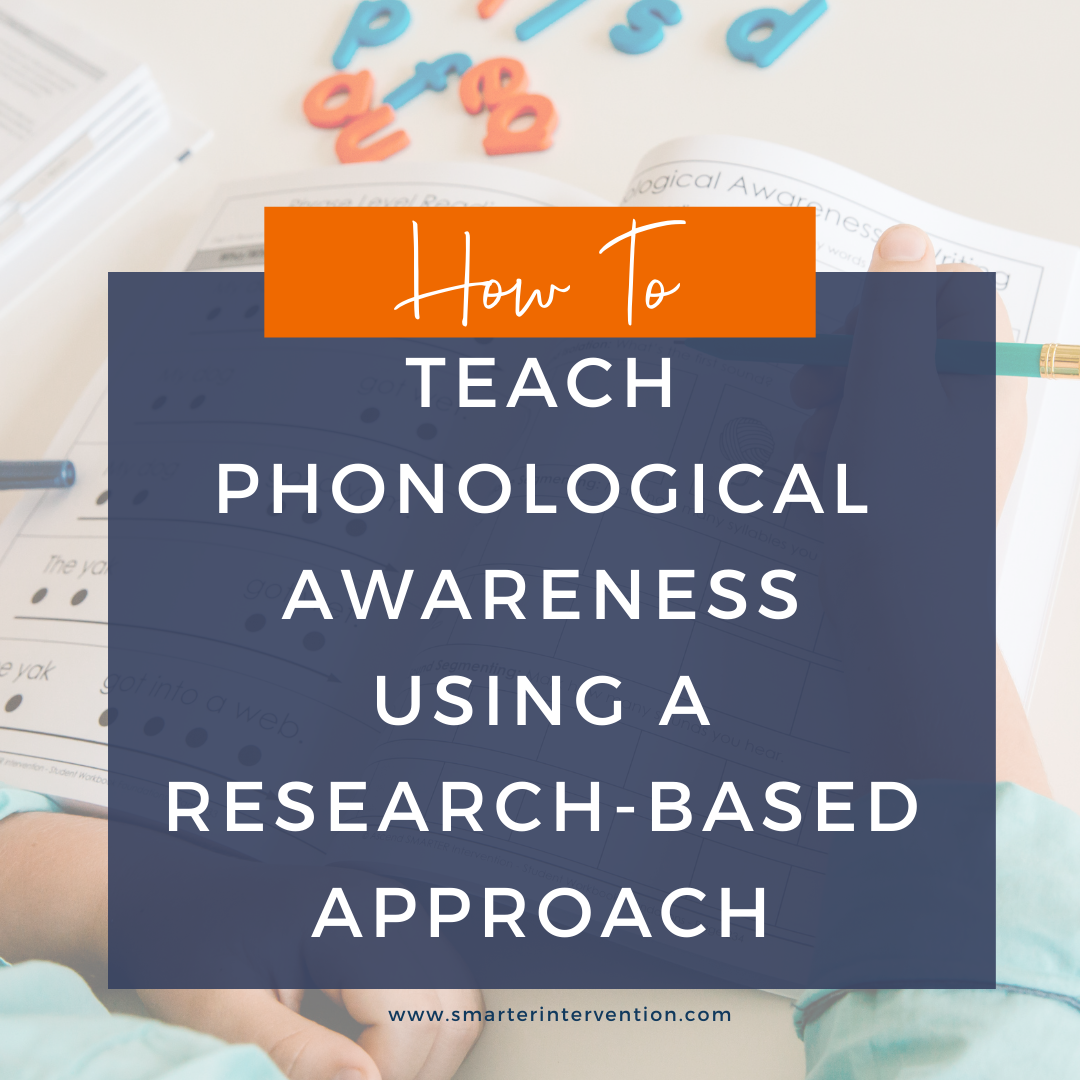Science-based literacy resources and articles
for families, educators and schools
Search by Category:
Categories
- Advocacy
- Authentic Literature
- Business
- Comprehension
- Data Tracking
- Differentiation
- Dyslexia
- Evaluation and Assessment
- Executive Functioning
- Games & Activities
- Helping My Child At Home
- How To
- IEP/504 Plan
- Lesson Planning
- Math
- Online Intervention
- Organization
- Parents
- Phonics
- Phonological Awareness
- Reading Comprehension
- Reading Fluency
- Research
- SLP
- Spelling
- Vocabulary
- Writing
How to Lesson Plan for Your Literacy Intervention
An effective lesson planning process has the potential to transform your year.
For us educators, lesson planning can reduce stress because we have everything outlined. It also saves us a ton of time in the long run.
But did you know that lesson planning also benefits our students? When we have clear plans, students begin understanding routines, and the increased cohesion between our lesson components helps them get better results!
Keep reading to learn the 5 step process to creating effective literacy lesson plans AND to grab our FREE lesson planning guides!
How to Support Your Students with Writing
Do you have students who struggle with writing?
Maybe they struggle to come up with ideas and just stare at their paper. Maybe they have a difficult time organizing their thoughts or using a clear introduction and conclusion. Or perhaps they forget to edit their work for things like capitalization and spelling.
Wherever in the writing process they struggle, one thing is for sure - writing can be tricky!
That’s why we’ve implemented this 3 step writing process. Keep reading to learn more.
How to Support Spelling - Scoop Spelling Strategy
We are so excited to share this resource with you today! Scoop Spelling changed my life! This strategy brought such relief to my students who struggled to spell multi-syllable words correctly and instantly boosted their confidence! This strategy is so simple to use!
First, make sure that your students are solid on syllabication; what syllables are and how to count them. This knowledge is the key to Scoop Spelling. If a student knows or can hear how a word breaks apart into syllables, then they can Scoop Spell!
Why Running Summer Groups Will Be The Best Thing You Do This Summer
Running summer groups was one of the best decisions for us and we know it can be for you too! Click through to learn the 3 reasons why running summer groups will be the best thing you do this year!
How to Systematically Review Previously Learned Material
As students progress through reading instruction and learn harder skills, it is imperative that we review previously learned concepts with them too. Without systematic review, we risk students losing previously mastered skills. Read on to see how we systematically review with our students - these strategies have made a huge difference for us!
How to Organize Your Small Group Literacy Materials
Our goal for the year was to organize all of our materials and we’ve been making good progress! One of the spaces that has felt the most successful has been our small group tables. So, we thought we’d share our organizational system with you!
How to Use 1 Reading Activity to Target 5 Literacy Skills
There are so many different factors that play into learning to read and write effectively. It can often feel overwhelming because it seems like we need to hit on all of these skills separately and hope that it all comes together! This isn’t the case. With just one activity, you can hit on multiple skills and help your students grow!
Should I Teach Rhyming?
You may be wondering if teaching students to rhyme is really necessary. Recently, research has been mixed on whether or not we should be targeting this skill in our instruction.
The argument here is that it isn't necessary to teach because it doesn't directly translate to reading in the same way blending does.
So…should we be teaching rhyming? Keep reading to find out.
How Do I Fit It All In? Organizing Your Literacy Block to Align with the Science of Reading
Following the Science of Reading requires many lesson components we should be including in our literacy instruction.
Between explicitly teaching the 5 Core Components of Literacy, targeting student needs, tracking data, and pulling review activities - it can definitely feel like a lot!
But here’s the thing, research-based instruction that aligns with the Science of Reading does not have to be hard. All you need is a clear framework you can use to plan your lessons in alignment with research-based principles so that you know you are covering everything you need without it feeling super overwhelming!
How to Build Fluency & Comprehension at the Passage Level
When working with students, our end goal is always that they can functionally read and write. A big part of this is the ability to read at the passage level and derive meaning from the text.
Luckily - building fluency and comprehension at the passage level doesn’t have to be hard. Keep reading to learn how you can incorporate this instruction into your reading lessons!
How to Build Fluency & Comprehension with Sentence Reading
There are a lot of misconceptions when it comes to reading fluency and comprehension, including the fact that it is difficult to support, means that students need to be reading faster, and is reserved for when they can read at the passage level. Today - we are breaking down these misconceptions and discussing how you can use sentence-reading to help build your students’ fluency & comprehension skills!
How to Fit Vocabulary in to Your Reading & Writing Lessons
Vocabulary instruction is necessary in order for phonics to matter. Keep reading to learn how you can easily & effectively incorporate vocabulary instruction into your reading & writing lessons.
How to Get the Most Out of Your Literacy Lessons
Have you ever thought to yourself - “How in the world am I EVER going to fit everything into my lessons?!” or maybe, “How can I better support my students?”
We certainly have!
The great news - we can actually make our interventions lessons MORE effective WITHOUT adding a ton of additional time. Keep reading to learn how!
How To Explicitly Teach Phonics Rules
It’s no secret that research tells us we need to teach rules explicitly - but what exactly does that mean?
Today, we are going to break down exactly what “teaching rules explicitly” means as well as walk you through how you can use this approach in your lessons!
What To Do When Your Students Need More Practice: The Importance of Systematic Review
Have you ever looked through your students’ lesson data and thought - “gosh, they just aren’t getting this?”
We’ve all been there. Today - we are going to break down what you can do when students need more practice and the importance of systematically reviewing previously learned concepts.
How To Fit Phonological Awareness into Your Reading & Writing Lessons
It is no secret that phonological awareness skills are a key component to reading and spelling, but for a long time it felt like the way to effectively fit these drills into our lessons WAS a secret! After a while of looking at the data (and some trial/error!), we found a way that worked for us and want to share it with you!
How to Teach Phonological Awareness using a Research-Based Approach
First things first, what is phonological awareness?
We’re so glad you asked, at the simplest level - it’s understanding the sounds of our language. It includes skills that we need to break words up into individual sounds and blend sounds together in order to “sound words out.” Phonological awareness DOES NOT require any knowledge of letters. Students could complete phonological awareness drills completely in the dark (meaning they don’t need to be reading or recognizing letters at all). The number of sounds in words and letters in words are not always the same!
The Actual Cost of Duct-Taping Your Intervention Together
Struggling with scattered resources for reading intervention? Discover the pitfalls of the one-off approach and learn how to streamline your lesson planning. Find out why cohesion and intentionality matter and explore a program that targets all 5 Core Components of Literacy in EVERY lesson.



















